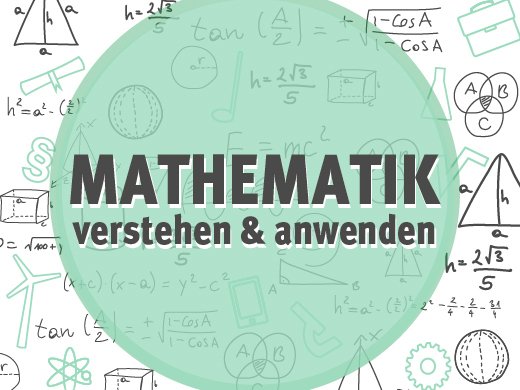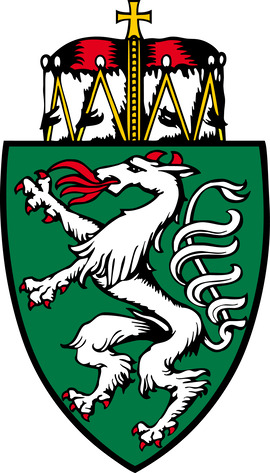


Mathematics Lecture Series: Understanding and Applying Mathematics
Styrian University Conference
Steirische Hochschulkonferenz
About
General Course Information
With the video series "Applied Mathematics - Explaining Mathematics in an Understandable Way", the nine Styrian universities offer online lectures that show how close mathematics is to everyday life and applications. There is much more to mathematics than formulas, equations and numbers. Mathematics can be found everywhere in our everyday lives. The video series of the Styrian universities shows what mathematics can do, for example how it is behind the sound of an electric guitar and the delivery of letters, or how it makes drones fly. All lectures in the lecture series are given by experts from the nine Styrian universities. They are presented in a comprehensible way and are aimed at high school students, prospective students and, of course, anyone else who is interested.
Content
Course Content
- The contagious mathematics - Infections
- Mail delivery - Do you really need mathematics for that?
- How do you count fatty acids?
- Painting by numbers: How can statistical information be graphically processed?
- When mathematics takes off: how are drones controlled with systems of linear equations?
- What is mathematical research?
- Understanding functions and experiencing their versatility
- Sizes in everyday life
- Sounds great ! - The mathematics behind the sound of the electric guitar
Certificate
For actively participating in the course you will receive an automatic certificate which includes your username, the course name as well as the completed lessons. We want to point out that this certificate merely confirms that the user answered at least 75% of the self-assessment questions correctly.
Licence
This work is licensed under CC BY-NC-ND 4.0Course Instructor
Steirische Hochschulkonferenz
Nine universities join forces in Styria and strengthen a common higher education area based on excellent regional cooperation. Together, they offer a broad range of studies with cross-university training and continuing education programs and create future-oriented research focuses with an international orientation. The creation of a common higher education area is intended to increase the visibility of science in general and of Styria as a science location in particular
Speaker:
Sereina Herzog works as an Assistant Professor of Biostatistics at the Institute of Medical Informatics, Statistics and Documentation at the Medical University of Graz, Austria. She is a mathematician by training and specializes in modeling the dynamics of infectious diseases. In her research, she uses mathematical models in the context of study designs and in the analysis of serological data. Her current work also includes statistical analysis and design of clinical trials in various areas of medicine, as well as collaborations with international research groups, including those in Switzerland and Belgium. She is also involved in teaching at the Medical University of Graz and has worked at several universities in different countries.
Rostislav Stanek started his studies in Plzeň; later he moved to Graz to continue his studies at the TU and subsequently to obtain his PhD. Professionally, he worked as a scientific project staff member and subsequently as a university assistant at KFU Graz; since 2020, he has been working as a senior lecturer at the University of Leoben, where he is responsible for numerous courses. His main research areas include operations research and combinatorial optimization.
Klemens Fellner studied technical mathematics and physics at the Vienna University of Technology and bassoon at the Vienna Conservatory. After his Ph.D. in 2002, he worked as a PostDoc in Spain, France, Australia, and Vienna. From 2007-2011, Klemens Fellner was a senior research associate at the University of Cambridge. In 2011, Klemens Fellnerwas appointed Professor of Mathematics/Computational Sciences at the University of Graz. Klemens Fellner is an applied mathematician and expert in partial differential equations. He has a special interest in mathematical modeling in the life sciences. He is also a project leader in an unconventional research project with the theme of mathematics and art.
Jul Martens. 1992 to 1995 University Assistant at the Institute for Statistics, Econometrics and Operations Research (now Institute for Operations and Information Systems) at Karl-Franzens-University. Since 1995 he has been working at Grazer Wechselseitige Versicherung AG, in actuarial function and as a group leader for statistical analyses. For more than 25 years part-time lecturer at the University of Applied Sciences Campus02 in the Marketing and Sales program. Further lectureships at the Karl-Franzens-University at the Institute for Operations and Information Systems and at the University of Applied Sciences Joanneum Graz in the study program Banking and Insurance.
Bernd Messnarz studied technical physics at the Graz University of Technology and received his doctorate there in 2003. He then worked as a university assistant at the Institute of Bioinformatics and Genomics before moving to FH JOANNEUM in 2005 to the Institute of Aviation/Aviation. As an Associate Professor, he was responsible for teaching numerous courses in the STEM field and was awarded the Teaching Award four times for his outstanding achievements in teaching. Since 2020, he has been working at the institute as a program director for the bachelor's program in Aviation/Aviation and is involved in research on the development and control of drones.
Christoph Aistleitner was born in Steyr (Upper Austria) in 1982. He studied Technical Mathematics at the TU Vienna and came to Graz as a PhD student. Since then he has been working at TU Graz, meanwhile as a professor at the Institute for Analysis and Number Theory. His work at the TU Graz was interrupted by several years of stays abroad for research purposes, among others in Sydney (Australia) and Kobe (Japan). He is married and has four children.
Karl-Heinz Graß studied mathematics and chemistry at the Karl Franzens University in Graz, where he received his doctorate in general mathematics in 2014. Before joining the University of Teacher Education Styria as a professor in 2016, he worked for five years as a high school teacher at the Akademisches Gymnasium in Graz and at WIFI Styria. Since 2019, he has been a university professor for mathematics didactics and involved in the implementation of numerous courses at the University of Teacher Education Styria and the Karl Franzens University Graz. His research focuses on the interconnectedness of arithmetic and geometry, the role of affective features in mathematics learning, and neuroscientific aspects of number processing and computation.
Robert Schütky studied at Karl-Franzens-University Graz, where he received his Ph.D. in theoretical physics in 2016. Before coming to KPH Graz as a professor for mathematics didactics at the primary level, he was a research assistant and lecturer at Karl-Franzens-University Graz. In October 2022, he will take up the university professorship for mathematics didactics at the primary level at PPH Augustinum. His research focus is on the didactics of sizes and units of measurement.
Robert Höldrich is a professor of audio engineering and acoustics and head of the Institute for Electronic Music and Acoustics (IEM) at the University of Music and Performing Arts in Graz (KUG), Austria. He studied flute, composition, and electrical engineering, and received his Ph.D. in applied mathematics. His scientific research includes work in the fields of sonification, psychoacoustics, signal processing, sound analysis and synthesis, recording and playback technology, virtual acoustics, and media philosophy.
Login & Enrol Currently: 410 Participants
Free for all € 0.00
Partners
